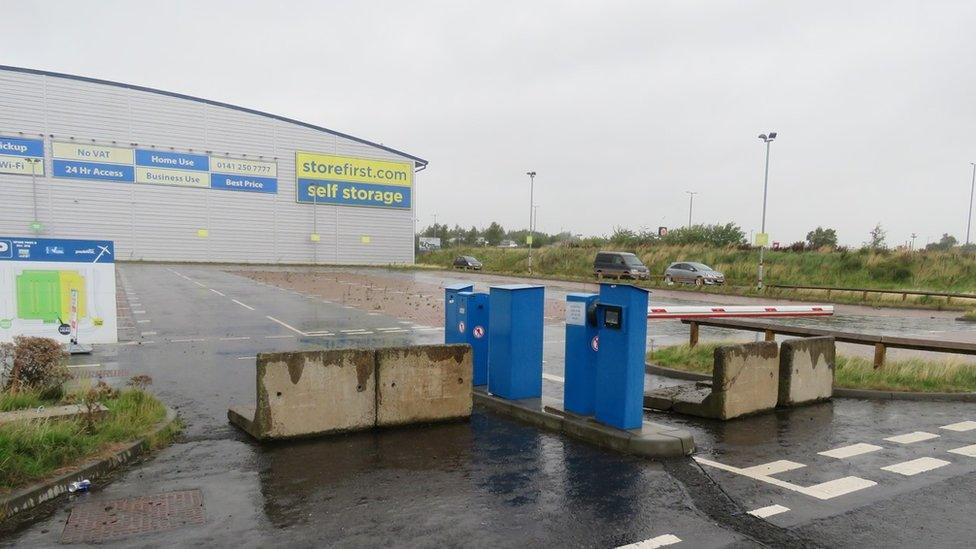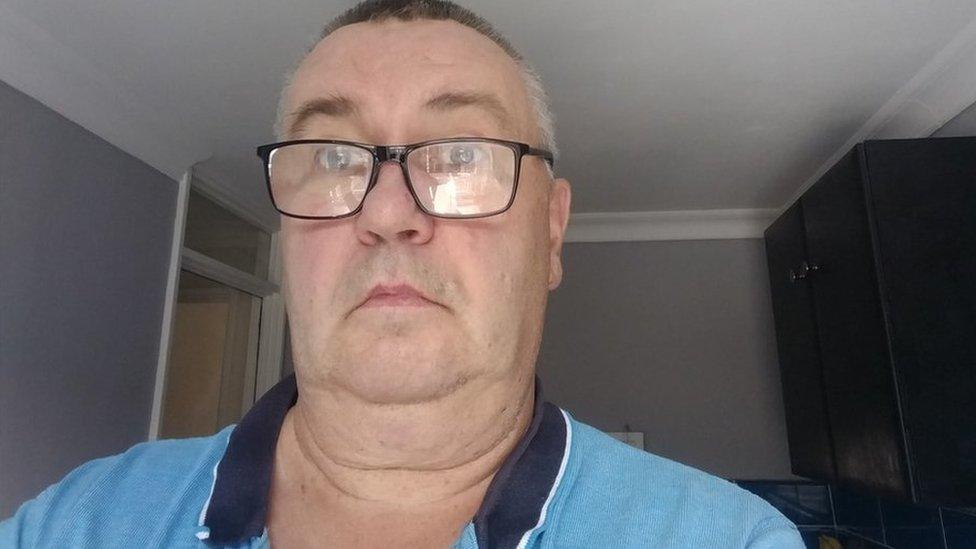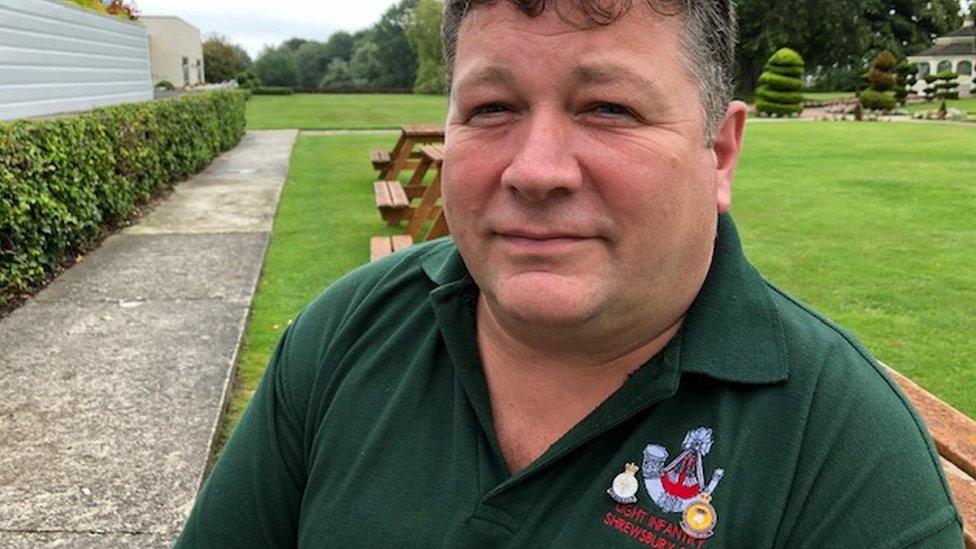Wirral solicitors struck off over pension investments dishonesty
- Published

Group First's brochures recommended the siblings as the firm's "preferred solicitor"
Two solicitors who gave services to thousands of people investing their pensions in a complicated scheme were "manifestly incompetent, reckless and dishonest", a tribunal has heard.
Margaret and Clem Hetherington, from Wirral, carried out conveyancing for investments in storage units or parking spaces from Lancashire's Group First.
A solicitors disciplinary tribunal found them to be dishonest.
They were struck off the solicitors' roll and ordered to pay £98,000 costs.
The tribunal heard that 70% of The Hetherington Partnership's business was conveyancing for people investing in Group First.
The siblings did that legal work from their high-street firm in Hoylake for about 7,500 people between 2011 and 2017 until they were raided by the Solicitors Regulation Authority (SRA).
'Quick paper exercise'
Investors were called by separate sales companies who told them their pension was not performing well, and that they would be much better off putting their money into buying Group First's self-storage units or car parking spaces.
The firm, which had had 14 storage warehouses across the UK and car parks at London Gatwick, Glasgow and Luton airports, earned about £500m in investments from people's pensions and savings by promising returns of about 50% over six years.

Group First owned storage firm Store First, which sold storage pods, and Park First, which sold parking spaces
Investors were told they would generate high returns from rent paid by people storing their belongings or parking their cars at airports and its brochures promised that the firm would buy back the storage pods or parking spaces if investors ever wanted out.
The tribunal heard that promise turned out to be false, but The Hetherington Partnership did not ever question it on behalf of any of their thousands of clients.
The brochures also recommended the siblings as Group First's "preferred solicitor", stating that they were "quick and efficient".
However, investors were not actually buying storage and parking spaces, but were instead buying highly complicated leases.
The Hetheringtons did not explain that or any of the risks to their clients and instead did a "quick paper exercise" for conveyancing at £600 each, the SRA heard.
The tribunal was told the pair "deliberately did not concern themselves with the interests of clients, preferring instead to make money from their work" and they made "up to £3m in fees".
'No lump sum'
The storage firm owned by Group First, Store First, was shut down by the government in April 2019, and in the following October, its parking space company, Park First, was ordered by the financial regulator to refund people's money, external.
Though there was not enough money in the company at the time, the Financial Conduct Authority said the owner of Group First, Toby Whittaker, had agreed to pay some money back himself, external on 2 August, on condition that he was not prosecuted.
The SRA's lawyer, James Ramsden QC, said it had taken nearly four years to get the Hetheringtons to tribunal, because they had been "very difficult and obstructive", had claimed they had mental illness and had received death threats.
The tribunal found the pair to be dishonest and banned them from acting as solicitors for life.

John Horton from Sheffield said his family broke up because of the stress of losing his pension
John Horton, 59, from Sheffield, put his £100,000 pension into storage units in February 2012.
He had hoped the investment would benefit his son Charlie, who has severe autism, but it is now deemed worthless.
He told BBC Radio 4's You and Yours he had trusted the Hetheringtons to give sound advice.
"Naive as I was, I just didn't think there were solicitors who wouldn't work to your benefit," he said.
Solicitors are mandated to have insurance to practice, but generally if they are dishonest, the insurers will not pay out.
However, the SRA has a discretionary £60m fund used to pay out in cases of dishonesty, which means some investors may receive some compensation.
Mr Horton said it is not just money that has been lost.
He said he and his partner of 24 years split up because of the stress caused by his investing in Group First.
"We were always rowing, so it's caused the break-up of the family, and there's no lump sum or big pension to leave for my son," he added.
Related topics
- Published8 August 2019

- Published23 May 2017

- Published8 December 2015
- Published20 October 2014
